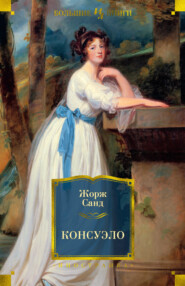По всем вопросам обращайтесь на: info@litportal.ru
(©) 2003-2024.
✖
The George Sand-Gustave Flaubert Letters
Настройки чтения
Размер шрифта
Высота строк
Поля
While waiting, I am still here, stuck up to my chin in the river every day, and regaining my strength entirely in this cold and shady stream which I adore, and where I have passed so many hours of my life reviving myself after too long sessions in company with my ink- well. I go definitely to Paris, the 16th; the 17th at one o'clock, I leave for Rouen and Jumieges, where my friend Madame Lebarbier de Tinan awaits me at the house of M. Lepel-Cointet, the landowner; I shall stay there the 18th so as to return to Paris the 19th. Will it be inconvenient if I come to see you? I am sick with longing to do so; but I am so absolutely forced to spend the evening of the 19th in Paris that I do not know if I shall have the time. You must tell me. I can get a word from you the 16th in Paris, 97 rue des Feuillantines. I shall not be alone; I have as a travelling companion a charming young literary woman, Juliette Lamber. If you were lovely, lovely, you would walk to Jumieges the 19th. We would return together so that I could be in Paris at six o'clock in the evening at the latest. But if you are even a little bit ill still, or are PLUNGED in ink, pretend that I have said nothing, and prepare to see us next month. As for the WINTER walk on the Norman coast, that gives me a cold in my back, I who plan to go to the Gulf of Juan at that time.
I have been sick over the death of my friend Rollinat. My body is cured, but my soul! I should have to stay a week with you to refresh myself in your affectionate strength; for cold and purely philosophical courage to me, is like cauterizing a wooden leg.
I embrace you and I love you (also your mother). Maurice also, what
French! One is happy to forget it, it is a tiresome thing.
Your troubadour
G. Sand
LXVI. TO GEORGE SAND
Dear master,
What, no news?
But you will answer me since I ask you a service. I read this in my notes: "National of 1841. Bad treatments inflicted on Barbes, kicks on his breast, dragged by the beard and hair in order to put him in an in-pace. Consultation of lawyers signed: E. Arago, Favre, Berryer, to complain of these abominations."
Find out from him if all that is true; I shall be obliged.
LXVII. TO GUSTAVE FLAUBERT, at Croisset
Paris, Tuesday, 1st October, 1867
Dear friend, you shall have your information. I asked Peyrat last evening, I am writing today to Barbes who will answer directly to you.
Where do you think I have come from? From Normandy. A charming opportunity took me there six days ago. I had been enchanted with Jumieges. This time I saw Etretat, Yport, the prettiest of all the villages, Fecamp, Saint-Valery, which I knew, and Dieppe, which dazzled me; the environs, the chateau d'Arques, Limes, what a country! And I went back and forth twice within two steps of Croisset and I sent you some big kisses; always ready to return with you to the seaside or to talk with you at your house when you are free. If I had been alone, I should have bought an old guitar and should have sung a ballad under your mother's window. But I could not take a large family to you.
I am returning to Nohant and I embrace you with all my heart.
G. Sand
I think that the Bois-Dore is going well, but I don't know anything about it. I have a way of my own of being in Paris, namely, being at the seaside, which does not keep me informed of what is going on. But I gathered gentians in the long grass of the immense Roman fort of Limes where I had quite a STUNNING view of the sea. I walked out like an old horse, but I am returning quite frisky.
LXVIII. TO GEORGE SAND
At last, at last, I have news of you, dear master, and good news, which is doubly agreeable.
I am planning to return to my home in the country with Madame Sand, and my mother hopes that will be the case. What do you say? For, with all that goes on, we never see each other, confound it!
As for my moving, it is not that I lack the desire of being free to move about. But I should be lost if I stirred before I finish my novel. Your friend is a man of wax; everything gets imprinted on him, is encrusted on him, penetrates him. If I should visit you, I should think of nothing but you and yours, your house, your country, the appearance of the people I had met, etc. I require great efforts to gather myself together; I always tend to scatter myself. That is why, dear adored master, I deprive myself of going to sit down to dream aloud in your house. But, in the summer or autumn of 1869, you shall see what a fine commercial traveller I am, once let loose to the open air. I am abject, I warn you.
As to news, there is a quiet once more since the Kerveguen incident has died its beautiful death. Was it not a farce? and silly?
Sainte-Beuve is preparing a lecture on the press law. He is better, decidedly. I dined Tuesday with Renan. He was marvellously witty and eloquent, and artistic! as I have never seen him. Have you read his new book? His preface causes talk. My poor Theo worries me. I do not think him strong.
LXIX. TO GUSTAVE FLAUBERT, at Paris
Nohant, 12 October, 1867
I have sent your letter to Barbes; it is fine and splendid, as you are. I know that the worthy man will be glad of it. But as for me, I want to throw myself out of the window; for my children are unwilling to hear of my leaving so soon. Yes, it is horrid to have seen your house four times without going to see you. But I am cautious to the point of fear. To be sure the idea of summoning you to Rouen for twenty minutes did occur to me. But you are not, as I am, on tiptoe, all ready to start off. You live in your dressing gown, the great enemy of liberty and activity. To force you to dress, to go out, perhaps in the middle of an absorbing chapter, and only to see someone who does not know how to say anything quickly, and who, the more he is content, the stupider he is, – I did not dare to. Here I am obliged to finish something which drags along, and before the final touch I shall probably go to Normandy. I should like to go by the Seine to Honfleur. It will be next month, if the cold does not make me ill, and I shall try this time to carry you away in passing. If not, I shall see you at least, and then I shall go to Provence.
Ah! if I could only take you there! And if you could, if you would, during the second week in October when you are going to be free, come to see me here! You promised, and my children would be so happy if you would! But you don't love us enough for that, scoundrel that you are! You think that you have a lot of better friends: you are very much mistaken; it is always one's best friends whom one neglects or ignores.
Come, a little courage; you can leave Paris at a quarter past nine in the morning, and get to Chateauroux at four, there you would find my carriage and be here at six for dinner. It is not bad, and once here, we all laugh together like good-natured bears; no one dresses; there is no ceremony, and we all love one another very much. Say yes!
I embrace you. And I too have been bored at not seeing you, FOR A
YEAR.
Your old troubadour
LXX. TO GUSTAVE FLAUBERT, at Croisset
Nohant, 27 October, 1867
I have just made a resume in a few pages of my impressions as a landscape painter, gathered in Normandy: it has not much importance, but I was able to quote three lines from Salammbo, which seemed to me to depict the country better than all my phrases, and which had always struck me as a stroke from a master brush. In turning over the pages to find these lines, I naturally reread almost all, and I remain convinced that it is one of the most beautiful books that have been made since they began to make books.
I am well, and I am working quickly and much, so as to live on my INCOME this winter in the South. But what will be the delights of Cannes and where will be the heart to engage in them? My spirits are in mourning while thinking that at this hour people arc fighting for the pope. Ah! ISIDORE! [Footnote: Name applied to Napoleon III.]
I have tried in vain this month to go again to see ma Normandie, that is to say, my great, dear heart's friend. My children have threatened me with death if I leave them so soon. Just at present friends are coming. You are the only one who does not talk of coming on. Yet, that would be so fine! Next month I shall move heaven and earth to find you wherever you are, and meanwhile I love you tremendously. And you. Your work? your mother's health? I am worried at not having news of you.
G. Sand
LXXI. TO GEORGE SAND 1st November, 1867
Dear master,
I was as much ashamed as touched, last evening, when I received your "very nice" letter. I am a wretch not to have answered the first one. How did that happen? For I am usually prompt.
My work does not go very well. I hope that I shall finish my second part in February. But in order to have it all finished in two years, I must not budge from my arm-chair till then. That is why I am not going to Nohant. A week of recreation means three months of revery for me. I should do nothing but think of you, of yours in Berry, of all that I saw. My unfortunate spirit would navigate in strange waters. I have so little resistance.
I do not hide the pleasure that your little word about SALAMMBO gives me. That old book needs to be relieved from a few inversions, there are too many repetitions of ALORS, MAIS and ET. The labor is too evident.
As for the one I am doing, I am afraid that the idea is defective, an irremediable fault; will such weak characters be interesting? Great effects are reached only through simple means, through positive passions. But I don't see simplicity anywhere in the modern world.
A sad world! How deplorable and how lamentably grotesque are affairs in Italy! All these orders, counter-orders of counter-orders of the counter-orders! The earth is a very inferior planet, decidedly.
You did not tell me if you were satisfied with the revivals at the
Odeon. When shall you go south? And where shall you go in the south?
A week from today, that is to say, from the 7th to the 10th of November, I shall be in Paris, because I have to go sauntering in Auteuil in order to discover certain little nooks. What would be nice would be for us to come back to Croisset together. You know very well that I am very angry at you for your two last trips in Normandy.
Then, I shall see you soon? No joking? I embrace you as I love you, dear master, that is to say, very tenderly.
Here is a bit that I send to your dear son, a lover of this sort of fluff:

















